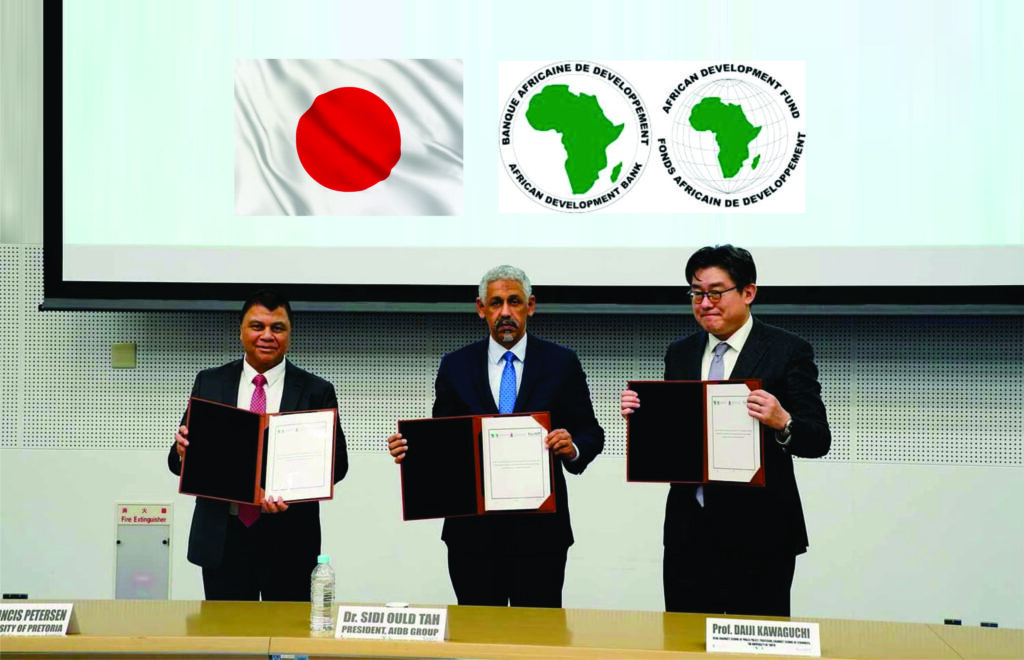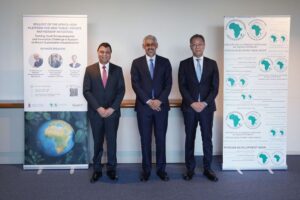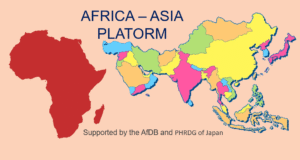Japan and AfDB Launch Africa-Asia Platform to Spur Youth Innovation and Shared Prosperity

Japan and the African Development Bank (AfDB) have launched a new Africa-Asia Platform designed to accelerate the exchange of knowledge, technology and innovation between the two regions. An expectation to bolster youth entrepreneurship, expanding cooperation across public and private sectors.
Announced in Tokyo at the United Nations University, the platform brings together senior leadership from both continents, including AfDB President – Dr. Sidi Ould Tah, University of Pretoria Vice-Chancellor – Prof. Francis Petersen, and University of Tokyo President – Dr. Teruo Fujii. Their presence presented the growing recognition that universities, development institutions and industry leaders must work together to prepare the next generation for an increasingly interconnected global economy. A bridge between two innovation powerhouses.
While Africa houses the world’s fastest-growing youth population, Asia offers decades of experience in industrialization, technical skills development and startup acceleration. The Africa-Asia Platform aims to connect these strengths through structured research collaboration, inter-university networks, policy dialogues and support for public-private-partnerships. Japan’s Policy and Human Resource Development Grant, a sustained trust fund, will support the initiative.
What makes the platform notable is its emphasis on reciprocity. Africa is not simply a beneficiary of Asian expertise. Both sides are positioned as equal partners. African entrepreneurs bring fresh perspectives in mobile finance, creative industries and climate change. Areas where the continent is already a global leader. Asian institutions contribute deep experience in innovation ecosystems, supply-chain management and manufacturing. However, the youth is at the center of the agenda.
With respect to the AfDB, whose broader agenda includes reducing unsafe migration and expanding economic opportunities, youth entrepreneurship is not an economic afterthought, but a political and social necessity. This platform is the next frontier of the AfDB collaboration that is going to empower young Africans through innovation, investment and drive market competitiveness.

The policy comes at a time that African governments are grappling with demographic pressures. Tens of millions of young people enter the labour market every year, often outpacing the capacity of national economies to absorb them. New models of cross-continental cooperation, such as this platform, signal an emerging political consensus that solutions must be co-created with global partners. Even if it bags universities as connectors in a fragmented world.
A significant feature of the platform, is the anchor role assigned to universities. Prof. Petersen noted that academic institutions, which are often overlooked in development planning, are uniquely equipped to bridge geographic, cultural and institutional gaps. Their ability to generate interdisciplinary research, convene diverse stakeholders who can nurture future leaders into positions recognized as knowledge diplomats, in global development.
Dr. Fujii echoed this sentiment, emphasizing that joint research and student exchanges could cultivate long-term cultural ties that shape economic relationships for decades. To young innovators, these exchanges offer exposure to different markets, technologies, entrepreneurial models, etc.
The platform’s design points at a more coordinated economic partnership between Africa and Asia:
Business Opportunities: companies may gain access to new markets through innovation-focused collaborations, joint ventures and startup partnerships. Asia’s strong manufacturing hubs could pair with Africa’s emerging digital and creative industries to create hybrid value chains.
Policy Innovation: governments stand to benefit from comparative research on industrial policy, trade facilitation, climate adaptation and digital regulation. Expanses where Asia’s rapid development and Africa’s homegrown ingenuity offer complementary lessons.
Social Impact: by nurturing skills and entrepreneurship, the platform aims to address youth unemployment and the social tensions that arise from economic exclusion. Support for startups could also foster community-level development, from agritech to health innovation.

The Africa-Asia Platform adds to existing AfDB efforts, including the Pan African University Phase 2 and ENNOVA. An AI-driven innovation ecosystem that provides market intelligence, training and access to funding. Together, these programs reflect a broader strategy to strengthen Africa’s knowledge economy and innovation capabilities.
At the launch, leaders from the AfDB, University of Pretoria and University of Tokyo, reaffirmed their commitment to working with governments, industries and civil society to ensure that the platform delivers measurable benefits. Their agreement highlights a shared conviction that Africa’s sustainable development hinges on both local ingenuity and globally connected support systems.
As Africa and Asia look ahead, the platform would reimagine cooperation between two dynamic, youthful and innovation-rich regions.






